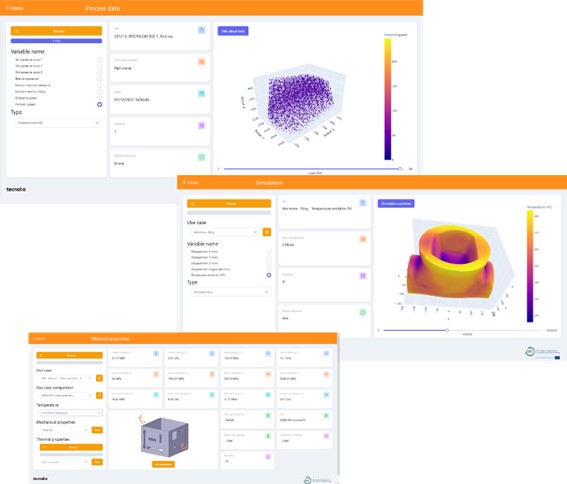MOLDAM develops 3D additive manufacturing technology by pellet extrusion of thermoplastic materials.
This technology enables the manufacturing process to be simplified, reducing the consumption of raw materials, with the possibility of mitigating the limitations due to the geometry of the mould or part to be manufactured. In this respect, the production of additive manufacturing mould preforms by thermoplastic pellets extrusion can contribute to increasing the productivity and profitability of the production plant.
Problems solved by MOLDAM
The manufacture of metal moulds for various sectors is costly with a lengthy manufacturing time, as it is necessary to smooth material to the dimensions of the target mould, and may require the machining of holes, cooling channels, etc., which makes the manufacturing process even more expensive.
The reduction of raw materials through the optimisation of the additive manufacturing process by high productivity pellet extrusion (kg/h), as well as the flexibility in the manufacturing due to the system itself enable costs (manufacturing time, logistics, generation of complex parts, etc.) to be reduced.
These features combined with a lower cost of the raw materials used lead to a significant reduction in the cost of producing large components with respect to conventional technologies.
Market potential
- Aerospace
- Wind
- Automotive industry
- Furniture
- Others
What TECNALIA offers
- MOLDAM Hybrid Manufacturing Cell (Shared with ARITEX) for the manufacturing of thermoplastic parts (under validation).
- Characterisation of thermoplastic materials extruded by additive manufacturing.
- Simulation of pre-mould behaviour under boundary conditions.
- MOLDAM Knowledge Software.

